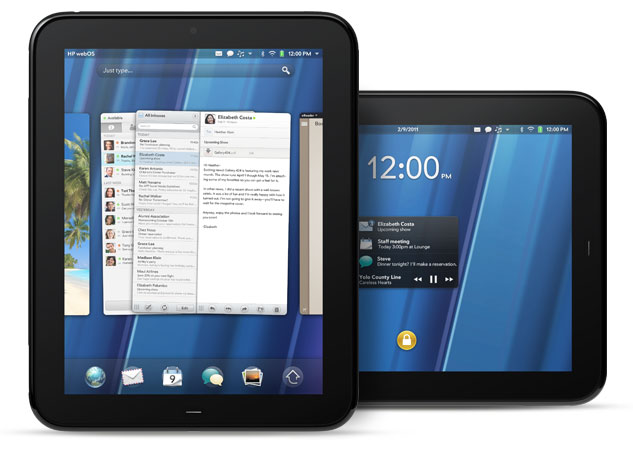Should we now expect to pay $500+ to be tablet beta-testers?


Most reviewers were just OK with the TouchPad while stating they wouldn't recommend it over the iPad. Some, like Jason Hiner were a bit more forgiving and some like Jason Perlow clearly stated it was a failure. Palm has yet to have a webOS device with excellent hardware and now that HP owns them that trend hasn't changed. The TouchPad feels a bit like a Fisher Price version of a tablet in today's sleek world with the iPad 2, BlackBerry PlayBook, and Samsung Galaxy 10.1. The glossy back is a super fingerprint magnet and 1.6 pounds is pretty heavy for a tablet.
I could not believe how much lag there was in the device and I even tried out two of them in the store to make sure it wasn't just one device. That was easy to do given that no one else was looking at the TouchPad and they had plenty in stock. I could not find anything overly compelling about the TouchPad during my 15 minutes with the device. Cards and multi-tasking were slick, but the multi-tasking on my iPad 2 is just fine and the PlayBook is much faster with a UI that looked to be a copy of webOS, but is now better in some respects. HP has had time to get webOS rocking on the TouchPad and the competition has been out the whole time so it wasn't a surprise what buyers would expect.
Google also is failing so far with Honeycomb and I personally could not stand using the Motorola Xoom with a disjointed UI that had me tapping all over the place with inconsistent user interface elements.
Out of the three newer tablet operating systems, RIM is actually doing the best in terms of a slick UI and solid performance with the PlayBook and even though I am not a BlackBerry smartphone user, after testing Honeycomb and webOS on tablets I am seriously considering picking up a BB Bold 9900 as soon as they get released -- since my PlayBook is pretty rocking.
Applications optimized for all three of these newer tablet operating systems are quite lacking compared to the Apple iPad; again, it should come as no surprise that people are comparing them and seeing that they are failing in this area.
In today's tough economy, I have to wonder how many more tablet devices will be released that launch with known issues, readily apparent UI problems, and lack of apps. Yes, many things can be fixed with updates, but why should we be paying good money for hope of updates that don't always come as fast as promised or as complete as you may be led to believe (yes, I am thinking of you, Motorola Xoom)?
See also:
- HP's TouchPad: Mixed reviews about user interface, inevitable iPad comparisons
- Vizio Tablet now available for pre-order at Costco.com and Vizio.com
- Toshiba Thrive available from Best Buy on July 10?
- HP: The TouchPad isn't meant to take down the iPad
- HP TouchPad vs. iPad, PlayBook, Android rests on enterprise power vs. BYO
- BlackBerry PlayBook vs. HP TouchPad: A tale of two failures